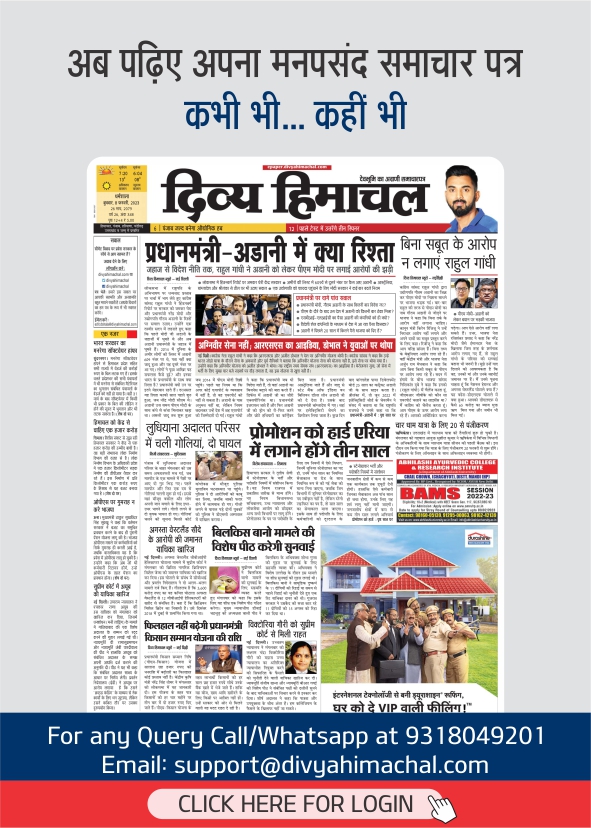Growing Inequality is Alarming in India
Vijay Sharma
(The writer is based at Himmer, Hamirpur)
Economic inequality is a hindrance to the process of growth and development of a developing country. Even though there is an economic growth in India, it is not able to reduce the growing inequalities in the Indian society. This glaring income inequality is striking at the heart of India’s effort to enter the league of developed nations of the world. The concentration of wealth in the hands of only a few in India is alarming. With the country’s shocking wealth inequality, it is vital that steps be taken to ensure that its economy works for all and not just a select few.
The part of the workforce working hard to build and improve on existing infrastructure, or provide the country with food is struggling with basic needs such as sufficient meals and medicine for their families. Further, vulnerable employment and labour productivity closely connect to a rise in poverty. In our country despite developing economy, workers who lose their jobs do not have access to social protection schemes. Thus, they avoid unemployment by taking up various forms of employment such as contributing to the family business like farming, selling goods in streets or doing daily wage work. This only results in an increase in vulnerable employment. It is, therefore, necessary for the government to promote inclusive growth by encouraging labour-intensive sectors. This includes investing in agriculture and effectively implementing social protection schemes. It would eventually help in the creation of more jobs. A recent report from the International Labour Organisation (ILO) estimates that 77% of the active workforce in India, not counting the unemployed, will be in vulnerable employment by 2019 despite economic growth. According to the World Bank, this already roughly affects three out of four workers in India. Worst still, despite the large proportion of jobs being created, most are still of poor quality and are expected to remain the same. The report says that of the 535 million estimated labour force in India by 2019, some 398.6 million will have poor quality jobs. A bigger worry for India is while the overall unemployment rate hovers continue. The report says by 2019, India will have 18.9 million unemployed. Vulnerable employment refers to a situation where there is little probability of formal work arrangements resulting in a lack of decent working conditions.
Last month when world top leaders meets in Davos, the Oxfam NGO report, released before the annual Davos World Economic Forum (WEF) says that this year’s wealth of India’s richest (1%) grew by over Rs 20.9 lakh crore during 2017 a little more than the total central budget. It states that 67 crore Indians, comprising the population’s poorest half, saw their wealth rise by just 1% in 2017. India continues to be no stranger to income inequality as its gap just widens further. Oxfam’s report outlines the basic factors driving up rewards for shareholders and corporate bosses at the expense of workers pay and conditions. These include the erosion of workers rights; the excessive influence of big business over government policy-making; and the relentless corporate drive to minimise costs in order to maximise returns to shareholders.
Keep watching our YouTube Channel ‘Divya Himachal TV’. Also, Download our Android App













